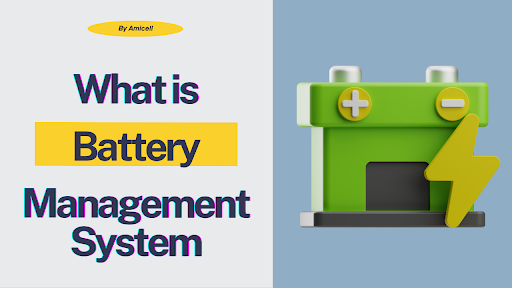
Batteries play a crucial role in our daily lives, powering everything from our smartphones to electric vehicles and renewable energy systems. However, ensuring the longevity and optimal performance of batteries require sophisticated systems, and this is where a Battery Management System (BMS) comes into play.
What is a Battery Management System (BMS)?
A Battery Management System, commonly known as BMS, is a critical component in modern battery technology. It acts as the brain of the battery, overseeing and managing various aspects to ensure efficiency, safety, and longevity. In essence, a BMS is the guardian angel of your battery, monitoring, and controlling its vital functions.
Components of a Battery Management System
A BMS comprises several components working seamlessly together. These include sensors, a microcontroller, communication interfaces, and a battery balancer. Each element plays a specific role, contributing to the overall health and performance of the battery.
Types of Battery Management Systems
Battery Management Systems (BMS) come in various types, each catering to specific needs and applications. Here’s an overview of the different types:
- Active BMS:
-
-
- Proactively manages and balances cells during both charging and discharging.
- Offers precise control and faster response to fluctuations.
-
- Passive BMS:
-
-
- Relies on external components like resistors for cell balancing.
- Generally simpler in design and cost-effective for less complex applications.
-
- Hybrid BMS:
-
- Combines features of both active and passive systems.
- Strikes a balance between precision and cost, suitable for diverse applications.
Understanding these types allows for informed decisions based on the specific requirements of energy storage systems.
Where to Buy Battery Management System Online
When looking to purchase a Battery Management System (BMS) online, Amicell stands out as a reliable and affordable option. Their website offers a user-friendly interface, a wide selection of BMS products, and competitive prices. For those seeking quality and affordability, Amicell is a recommended choice for acquiring BMS components.
How Does a BMS Work?
The functionality of a BMS is multifaceted. It involves constant monitoring of the battery’s state, balancing cell voltages, protecting against overcharging and over-discharging, and managing temperature levels. This intricate system ensures that the battery operates within its safe and optimal parameters.
Importance of BMS in Battery Technology
A Battery Management System (BMS) is vital in battery technology, ensuring optimal performance, safety, and longevity. It acts as a guardian, monitoring and controlling various functions, making it an indispensable component for efficient energy storage.
Conclusion
In conclusion, a Battery Management System is the unsung hero behind the scenes, ensuring our batteries function optimally and safely. As technology continues to advance, so will the capabilities of BMS, ushering in a new era of energy storage.
FAQs
- What is the primary function of a Battery Management System?
-
-
- The primary function of a Battery Management System is to monitor, control, and optimize the performance of a battery, ensuring safety and longevity.
-
- Can BMS be retrofitted to existing batteries?
-
-
- Yes, in many cases, BMS can be retrofitted to existing batteries, providing an upgrade to enhance their functionality and safety.
-
- Are all electric vehicles equipped with BMS?
-
-
- Yes, virtually all modern electric vehicles are equipped with a Battery Management System to monitor and manage the vehicle’s battery pack.
-
- How often should a BMS be calibrated?
-
-
- The calibration frequency of a BMS depends on various factors, but it is generally recommended to follow the manufacturer’s guidelines, which may vary.
-
- What advancements can we expect in BMS technology?
-
- Future advancements in BMS technology may include the integration of artificial intelligence, improved energy density, and cost reduction for wider adoption.


